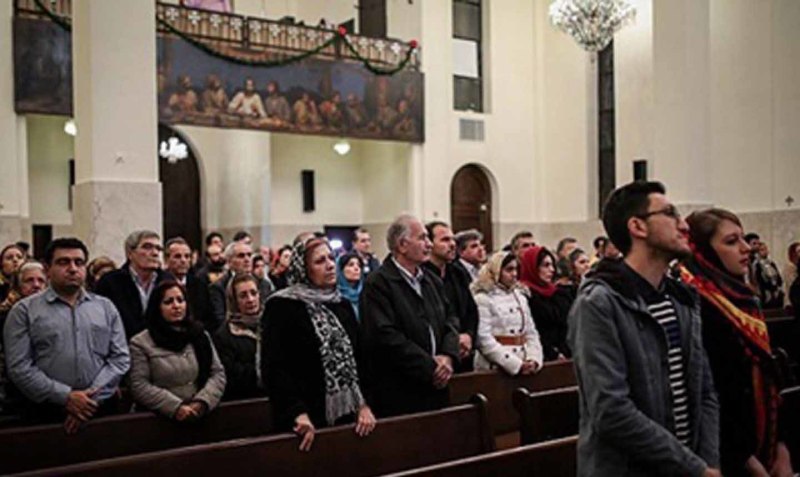
A report from Iran indicate that authorities have "dismantled" a Christian group for allegedly "creating moral deviations" and "promoting religious conversion."
According to the Revolutionary Guard Corps-linked Fars News Agency, a "Zionist" group was "dismantled" in a coordinated operation. The authorities reportedly disbanded a "network" of Christians in several provinces because they were "creating moral deviations" and "promoting [religious] conversion."
There was no report on the specific number of Christians arrested, as well as the date and place where they were allegedly arrested, according to Article 18.
The report accuses "Christian-affiliated networks" of taking "extensive" efforts to undermine the national security of Iran over the past 2 years.
The Iranian government uses terms like "Zionists," "cult," "sect," and even "enemy groups" when referring to Christian house churches. Those of Armenian and Assyrian decent, however, are afforded the more "friendly" and letient terms, such as "Christian Compatriots."
Using these terms, Iran is able to openly and blatantly deny persecuting Christians while maintaining a crackdown on house churches.
Previous reports indicate that experts from the U.N. recently wrote to the Iranian government to discuss "serious concerns" on the report about the "systematic persecution" of Christians in Iran.
Currently, there are at least 24 Christians who are in prison in Iran for engaging in alleged "actions against national security" because of their membership or leadership in house churches that the authorities do not consider legal.
The U.N. experts also asked Iran to provide details on the following:
"Grounds for the arrest, detention and conviction of all the individuals mentioned, and updated information about their cases."
A detailed explanation of how the national courts interpret the terms "acting against national security" and "propaganda against the state'" and "how these interpretations are compatible with the international norms and standards on freedom of religion or belief, freedom of expression, and freedom of peaceful assembly and association."
What measures and policies are being followed in order to "ensure that persons belonging to the Christian minority, including those converting from Islam, are not discriminated against in all walks of life, and fully enjoy their human rights, including freedom of thought, conscience, religion or belief, freedom of expression and freedom peaceful assembly and association."
Iran, of course, later denied the accusations and responded by firstly saying that all religious minorities in country are "entitled to all freedoms and civil rights, as stipulated in the Constitution."
It then added that "nobody is prosecuted on religious grounds" and that legal actions are taken only against members of "enemy groups" and "private churches" (house-churches) belonging to a "Zionist Christian cult" with "anti-security purposes." As mentioned, these is how the Iranian government hides its persecution of Christians.
After denying that they have persecuted people based on religious grounds, the letter also claimed that the said individuals mentioned who are in prison are "under cover of promoting Christianity, were in fact communicating with evangelical Zionism with a view to enmity and confrontation with the Islamic Establishment and subversive act against it through organized cults and holding illegal and secret meetings to deceive citizens and exploit the deceived persons, particularly children".
These kinds of news just go to show yet another example of how Iran wants to portray house-church members as distinct from mainstream Christianity which is known to be one of the three smaller religions in Iran.
The U.N. reported tackled the "reported persecution of members of the Christian minority in Iran, including converts from Islam, as well as the detention of dozens of Christians, most of whom have been convicted for exercising their right to freely observe and worship their religion."
The U.N. report also showed that Iran failed to provide fair legal proceedings which include legal harassment, lack of due process, and formulated charges.



























